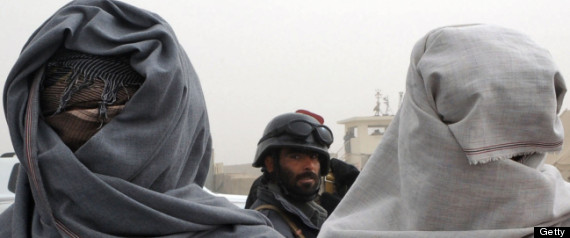Shitty idea, as soon as these guys are cut loose they will rejoin their comrades in the field.
Obama Administration Reportedly Mulls Transfer Of Taliban Prisoner As Part Of Long-Shot Peace Bid

Mohammed Fazl Hand-Over? Obama Administration Reportedly Mulls Transfer Of Taliban Prisoner As Part Of Long-Shot Peace Bid
Obama Administration Reportedly Mulls Transfer Of Taliban Prisoner As Part Of Long-Shot Peace Bid

WASHINGTON, Dec 29 (Reuters) - The Obama administration is considering transferring to Afghan custody a senior Taliban official suspected of major human rights abuses as part of a long-shot bid to improve the prospects of a peace deal in Afghanistan, Reuters has learned.
The potential hand-over of Mohammed Fazl, a 'high-risk detainee' held at the Guantanamo Bay military prison since early 2002, has set off alarms on Capitol Hill and among some U.S. intelligence officials.
As a senior commander of the Taliban army, Fazl is alleged to be responsible for the killing of thousands of Afghanistan's minority Shi'ite Muslims between 1998 and 2001.
According to U.S. military documents made public by WikiLeaks, he was also on the scene of a Nov. 2001 prison riot that killed CIA operative Johnny Micheal Spann, the first American who died in combat in the Afghan war. There is no evidence, however, that Fazl played any direct role in Spann's death.
Senior U.S. officials have said their 10-month-long effort to set up substantive negotiations between the weak government of Afghan President Hamid Karzai and the Taliban has reached a make-or-break moment. Reuters reported earlier this month that they are proposing an exchange of "confidence-building measures," including the transfer of five detainees from Guantanamo and the establishment of a Taliban office outside of Afghanistan.
Now Reuters has learned from U.S. government sources the identity of one of the five detainees in question.
The detainees, the officials emphasized, would not be set free, but remain in some sort of further custody. It is unclear precisely what conditions they would be held under.
In response to inquiries by Reuters, a senior administration official said that the release of Fazl and four other Taliban members had been requested by the Afghan government and Taliban representatives as far back as 2005.
The debate surrounding the White House's consideration of high-profile prisoners such as Fazl illustrates the delicate course it must tread both at home and abroad as it seeks to move the nascent peace process ahead.
One U.S. intelligence official said there had been intense bipartisan opposition in Congress to the proposed transfer.
"I can tell you that the hair on the back of my neck went up when they walked in with this a month ago, and there's been very, very strong letters fired off to the administration," the official said on condition of anonymity.
The senior administration official confirmed that the White House has received letters from lawmakers on the issue. "We will not characterize classified Congressional correspondence, but what is clear is the President's order to us to continue to discuss these important matters with Congress," the official said.
Even supporters of a controversial deal with the Taliban - a fundamentalist group that refers to Americans as infidels and which is still killing U.S., NATO and Afghan soldiers on the battlefield - say the odds of striking an accord are slim.
Critics of Obama's peace initiative remain deeply skeptical of the Taliban's willingness to negotiate, given that the West's intent to pull out most troops after 2014 could give insurgents a chance to reclaim lost territory or push the weak Kabul government toward collapse.
The politically charged nature of the initiative was on display this month when the Karzai government angrily recalled its ambassador from Doha and complained Kabul was being cut out of U.S.-led efforts to establish a Taliban office in Qatar.
U.S. officials appear to have smoothed things over with Karzai since then. Karzai's High Peace Council is signaling it would accept a liaison office for the Taliban office in Qatar - but also warning foreign powers that they cannot keep the Afghan government on the margins.
The detainee transfer may be even more politically explosive for the White House. In discussing the proposal, U.S. officials have stressed the move would be a 'national decision' made in consultation with the U.S. Congress.
Obama is expected to soon sign into law a defense authorization bill whose provisions would broaden the military's power over terrorist detainees and require the Pentagon to certify in most cases that certain security conditions will be met before Guantanamo prisoners can be sent home.
The mere idea of such a transfer is already raising hackles on Capitol Hill, where one key senator last week cautioned the administration against negotiating with "terrorists."
Mohammed Fazl Hand-Over? Obama Administration Reportedly Mulls Transfer Of Taliban Prisoner As Part Of Long-Shot Peace Bid


